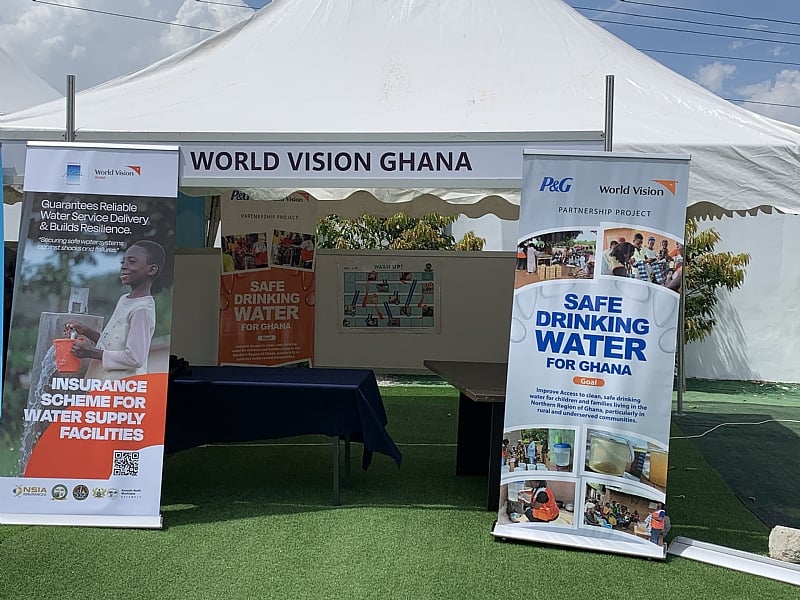Copyright modernghana

World Vision Ghana has introduced two innovative financing mechanisms to promote sustainable access to safe water, especially in rural and small-town communities. The initiatives; the Drinking Water Sustainability Fund and the Water Insurance Scheme, were unveiled at a side event during the ongoing 36th MOLE Conference on Water, Sanitation and Hygiene (WASH) held on Tuesday, November 4, at Gomoa Fetteh in the Central Region. Speaking to ModernGhana News on the sidelines, Charles Waawula, Project Coordinator for the Ahafo Regional Integrated WASH Project, explained that the Drinking Water Sustainability Fund is designed to provide long-term financial support for the operation and maintenance of rural and small-town water systems. He said the fund operates through a robust governance structure made up of a Board of Trustees drawn from the District Assembly, traditional authorities, the Regional Coordinating Council, World Vision, and an independent expert. It also has a Secretariat to handle daily operations and a financial service provider, Vision Fund, which manages and administers loans at low interest rates tailored to the WASH sector. “The project adopted this innovative financing mechanism to ensure that it can finance operational and capital maintenance of rural and small-town water systems,” Mr. Waawula said. “We expect seed capital contributions from the Assemblies, World Vision, and part of the revenue generated by the water service providers to grow the fund into a revolving facility.” He explained that 30 percent of revenue from water sales by service providers will be paid into the fund to sustain it, while efforts are underway to attract grants and concessional loans to expand its reach. On the Water Insurance Scheme, Mr. Waawula said the initiative was developed to protect rural water systems from frequent technical breakdowns and business interruptions, a first of its kind in Ghana’s WASH sector. “Over the years, the water sector has been trying to see what innovations can be put in place to ensure systems run uninterruptedly. Insurance is a tool that works for many sectors, and this scheme leverages that to ensure long-term sustainability of water facilities,” he explained. The scheme, designed with input from local insurance companies and water sector experts, provides coverage for five key system components; solar panels, submersible pumps, water storage tanks, smart meters, and control units. It also includes a business interruption package, which compensates for revenue losses when a system remains down beyond seven days. According to Mr. Waawula, the insurance product was developed through a bottom-up approach, involving consultations with communities and Water and Sanitation Management Committees to identify the most vulnerable system parts. He disclosed that five claims have already been made under the scheme, with payouts processed within three days, the agreed turnaround time. World Vision Ghana hopes to evaluate the performance of both the fund and insurance scheme after a year and explore scaling them up to other regions as part of efforts to strengthen water service delivery sustainability across the country. Meanwhile, the MOLE XXXVI Conference, organised by the Coalition of NGOs in Water and Sanitation (CONIWAS), seeks to advance innovation, partnerships, and evidence-based strategies to accelerate progress in Ghana’s WASH sector. Among the institutions and organisations participating include the Media Coalition Against Open Defecation (M-CODe) being sponsored by World Vision Ghana.



